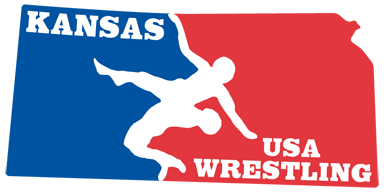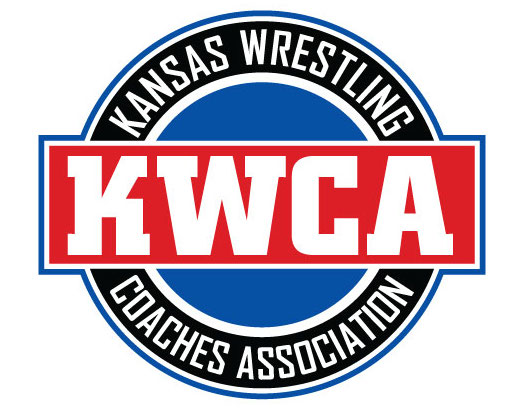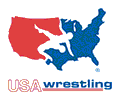 Parents: tips on talking with coach
#171346
06/29/10 09:24 AM Parents: tips on talking with coach
#171346
06/29/10 09:24 AM
|
Joined: Jul 2001
Posts: 6,248
smokeycabin
 OP
OP
Member
|
OP

Member
Joined: Jul 2001
Posts: 6,248 |
http://www.themat.com/section.php?section_id=3&page=showarticle&ArticleID=22169Parents: tips on talking with coach 5Share 0diggsdigg Related Links Parent and Coach Interventions PDF Liberty Mutual Responsible Sports Program http://www.responsiblesports.comBy Responsible Sports 06/28/2010 Research shows when we as parents support our children's teachers, students learn more. This concept can be transferred to sports, where kids will have a better sports experience if we work in unison with the coach to create a positive youth sports environment. Responsible Sports has developed this section for suggestions to help Responsible Sport Parents build effective coach/parent partnerships. Conversation with your children about their youth sports experience is the single most important factor in their ability to take life lessons from sports. Principles that Responsible Sports Parents can apply to conversations with their coach: • Recognize the coach's commitment • Make early, positive contact with the coach • Fill the coach's emotional tank • Don't instruct during a game or practice • Don't put the player in the middle • Observe a "cooling off" period Download and print parent & coach interventions PDF to be able to keep this information in your back pocket at games and practices.
Last edited by smokeycabin; 06/29/10 09:39 AM.
|
|
|
 Re: Parents: tips on talking with coach
[Re: smokeycabin]
#171348
06/29/10 09:29 AM Re: Parents: tips on talking with coach
[Re: smokeycabin]
#171348
06/29/10 09:29 AM
|
Joined: Jul 2001
Posts: 6,248
smokeycabin
 OP
OP
Member
|
OP

Member
Joined: Jul 2001
Posts: 6,248 |
Parent & Coach Intervention
Let's look at how to handle intervention, when you feel your child's coach needs to change in some way.
In the scenario of your daughter wanting to play striker for her soccer team, the first question to ask yourself: "Is this something that my daughter should do for herself?"
Empowering Your Child to Speak
There are several advantages to having your children, rather than you, speak directly to the coach. Many coaches are more open to suggestions from players than from parents. The biggest plus is that this can be an empowering experience for children, even if they don't get the change they want.
Mustering the courage to talk to the coach can be a great life lesson. Your children may gain important experiences about dealing with people above them in the power structure, at school or in future jobs, by talking with the coach on their own.
When You Need to Intervene
You would only have your children take up an issue with their coaches if you believe the coaches are basically well-meaning people trying to do the right thing. The sad truth is that some coaches do not always put their players' interests first.
If the coach is abusive to players, you must intervene. Youth sports has no place for a coach who verbally or physically intimidates athletes. You would never allow a teacher to bully or humiliate a student, and you must not allow it from a coach, even one who often gets a pass due to scoreboard success.
Unless your children are too young to understand what is going on, talk with them before acting to intervene. If a child is against the idea, but you believe the situation demands that you intervene, say, "I understand that you don't want me to talk with your coach, but I believe that this is so important that I have to do it."
Approaching the Coach
If you are angry about the situation, gain control of yourself and know exactly what you want to say. Pick a time and place where only the coach can hear you—not during a game or practice, and not where you might be overheard, which could make the coach more defensive.
You may need to write and even rehearse what you want to say until it sounds the way you want. Be prepared to support your assertions with specific examples. Then listen carefully to what the coach says in reply.
If the results are unsatisfactory, you may need to go higher up in the organization, and you should be open with the coach that this is your next step. Again, be clear about what you want to say when you meet the athletic director, principal, coaching director or league president.
Even though intervening feels uncomfortable, remember you are not just standing up for your child, but also for all of the other children that play on the team, or who might play for this coach in future seasons.
For a one-pager about Intervening, Download Responsible Conversation Parent &
|
|
|
 Re: Parents: tips on talking with coach
[Re: smokeycabin]
#171349
06/29/10 09:31 AM Re: Parents: tips on talking with coach
[Re: smokeycabin]
#171349
06/29/10 09:31 AM
|
Joined: Jul 2001
Posts: 6,248
smokeycabin
 OP
OP
Member
|
OP

Member
Joined: Jul 2001
Posts: 6,248 |
Responsible Conversation:
Parent & Coach Intervention Strategies
n Empowering Your Child to Speak
There are several advantages to having your children, rather than you, speak directly to the coach. Many
coaches are more open to suggestions from players than from parents. The biggest plus is that this can be
an empowering experience for children, even if they don’t get the change they want.
Mustering the courage to talk to the coach can be a great life lesson. Your children may gain important
experiences about dealing with people above them in the power structure, at school or in future jobs, by
talking with the coach on their own.
n When You Need to Intervene
You would only have your children take up an issue with their coaches if you believe the coaches are
basically well-meaning people trying to do the right thing. The sad truth is that some coaches do not always
put their players’ interests first.
If the coach is abusive to players, you must intervene. Youth sports has no place for a coach who verbally or
physically intimidates athletes. You would never allow a teacher to bully or humiliate a student, and you must
not allow it from a coach, even one who often gets a pass due to scoreboard success.
Unless your children are too young to understand what is going on, talk with them before acting to intervene.
If a child is against the idea, but you believe the situation demands that you intervene, say, “I understand that
you don’t want me to talk with your coach, but I believe that this is so important that I have to do it.”
n Approach ing the Coach
If you are angry about the situation, gain control of yourself and know exactly what you want to say. Pick a
time and place where only the coach can hear you—not during a game or practice, and not where you might
be overheard, which could make the coach more defensive.
You may need to write and even rehearse what you want to say until it sounds the way you want. Be
prepared to support your assertions with specific examples. Then listen carefully to what the coach says
in reply.
If the results are unsatisfactory, you may need to go higher up in the organization, and you should be open
with the coach that this is your next step. Again, be clear about what you want to say when you meet the
athletic director, principal, coaching director or league president.
Even though intervening feels uncomfortable, remember you are not just standing up for your child, but also
for all of the other children that play on the team, or who might play for this coach in future seasons.
|
|
|
 Re: Parents: tips on talking with coach
[Re: smokeycabin]
#171973
08/04/10 01:52 AM Re: Parents: tips on talking with coach
[Re: smokeycabin]
#171973
08/04/10 01:52 AM
|
Joined: Dec 2006
Posts: 60
Malay #189

Member
|

Member
Joined: Dec 2006
Posts: 60 |
It mite sound stupid, but if you have a problem with the coach then maybe you should be the coach. Coaching is a very tough thing to do with parents that are upset all the time and they don't know half of the strategy that you and the wrestler have talked about before the match. It's very frustrating to have a parent come up to you after a match and start telling you what you should of done differently. So if they have a problem with the coach maybe they should be the coach. Just my opinion.
Michael Malay
|
|
|
|
|
0 registered members (),
142
guests, and 3
spiders. |
|
Key:
Admin,
Global Mod,
Mod
|
|
|
Forums10
Topics36,084
Posts250,710
Members12,302
| |
Most Online1,305
Mar 13th, 2025
|
|
|







